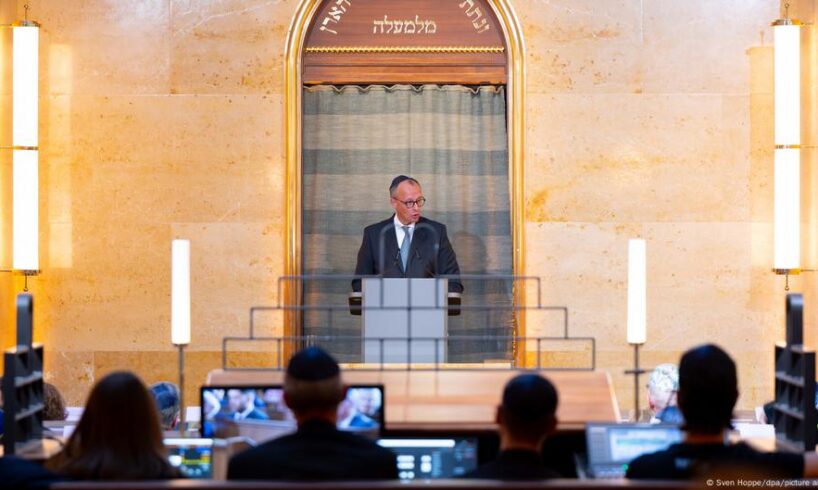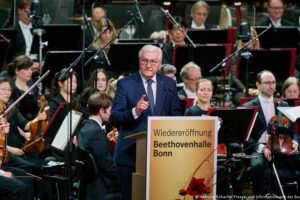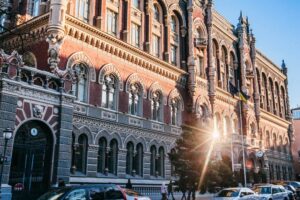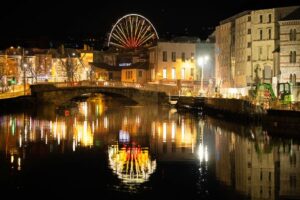
On Monday evening, German Chancellor Friedrich Merz struggled to hold back his tears as he gave an emotional speech celebrating the reopening of the synagogue in Munich.
The synagogue on Reichenbachstrasse was originally opened in 1931 and was severely damaged by the Nazis in 1938.
It is one of those small but significant stories of Judaism in Germany, which was almost destroyed by the Nazis, but has returned in all its diversity.
Merz had traveled to there for the opening ceremony, his first speech in a synagogue as an elected politician.
A few weeks after the terrorist attack carried out by Hamas in Israel on October 7, 2023, he was a guest at the synagogue on Brunnenstraße in Berlin, along with many other politicians.
Just a few days later, he visited the Jewish high school in the center of Berlin, and again five months later.
Afterwards, Merz was visibly shaken by the students’ fears in the face of antisemitic attacks.
He began his speech in Munich with greetings to the many older members of the city’s Jewish community, including 92-year-old Charlotte Knobloch and the chairman of the Central Council of Jews in Germany, 71-year-old Josef Schuster.
Antisemitism on the rise again
Merz soon turned to the “crime against humanity of the Shoah,” the Holocaust, the attempt at the “systematic, industrialized extermination of the Jewish people.”
His voice breaking, Merz paraphrased German-Jewish historian and philosopher Hannah Arendt (1906-1975), saying that such radical evil, as Arendt described it, “simply should not have happened among us humans.”
It was the first of two speeches by the German Chancellor on the situation for the Jewish community in Germany within 48 hours.
On Wednesday evening, the Central Council of Jews in Germany is hosting a reception in Berlin ahead of the Jewish New Year to mark its 75th anniversary. Chancellor Merz is the keynote speaker.
It is very unusual for the head of government to give two speeches on the same topic in such quick succession. Perhaps he feels it is necessary.
The 75th anniversary is taking place as antisemitism is on the rise.
“Openly identifying as Jewish, wearing a kippah or Star of David, has become problematic in quite a few neighborhoods in Berlin,” Josef Schuster told DW ahead of the celebration.
To mark the anniversary of the Central Council, prominent figures are gathering at the Jewish Museum in the German capital.
Consturction of the zig-zag shaped Jewish Museum in Berlin was completed in 1999Image: Miguel Villagran/AP Photo/picture alliance
Completed in 1999, the zigzag-shaped building by star architect Daniel Libeskind symbolizes the ruptures in Jewish life in Germany.
Opened 24 years ago, the museum shows the traditions of German Judaism between everyday life and the destruction of the Holocaust, threat and continuity.
Even this building, one of the most visited museums in Germany, is subject to heightened security. All visitors pass through a security checkpoint similar to those at airports.
This is everyday life for Jewish people in Germany, including at many synagogues.
Structural progress for the Jewish community
The Central Council was founded in July 1950, years after the reestablishment of a number of Jewish communities, including in Munich.
Jews who had survived the Holocaust took this step immediately after the end of the war in 1945
But for years, it remained unclear whether Jewish life would take root again in Germany, the country of the perpetrators.
On the Jewish side, there was controversy over whether it should take root again.
Today, according to Schuster, there is “lively Jewish life throughout Germany, really from Flensburg to Munich, from Aachen to Cottbus.”
Life in Germany’s largest Jewish retirement home
To view this video please enable JavaScript, and consider upgrading to a web browser that supports HTML5 video
Estimates suggest there are up to 250,000 Jews in Germany, almost half of whom belong to one of the country’s 105 Jewish congregations.
In recent years, the Central Council has made further structural progress for the Jewish community in Germany, including the (re)opening of several synagogues.
For a good three years now, the Bundeswehr has had its first Federal Military Rabbi and Jewish chaplaincy. A “Jewish Academy” is scheduled to open in Frankfurt am Main in the summer of 2026.
“In this respect, one might think that everything is fine,” Schuster told DW.
“Jewish life is flourishing. In one way that’s true. But in another way it’s not because especially since October 7, 2023, when Hamas attacked Israel, we have unfortunately also experienced increasing antisemitism and hatred against Jews in Germany.”
Merz emphasizes his own ‘shame’
On Monday evening in Munich, Merz addressed the heightened security situation.
“The services that will be held here starting today, the cultural events: they will all take place under police protection. Police are stationed in front of Jewish kindergartens, schools, restaurants, and cafes throughout Germany. Antisemitism has never disappeared from the Federal Republic,” he said.
He also emphasized his own shame for this “as Chancellor of the Federal Republic of Germany; as a German; as a child of the post-war generation.”
Josef Schuster: ‘Jewish life is flourishing’ in Germany
To view this video please enable JavaScript, and consider upgrading to a web browser that supports HTML5 video
Merz spoke of the “new wave of antisemitism: in old and new guises; blatant and thinly disguised; in words and deeds; on social media, at universities, in public spaces.”
“For too long, we in politics and society have closed our eyes to the fact that some of the people who have come to Germany in recent decades were socialized in countries of origin where antisemitism is practically state doctrine, and hatred of Israel is instilled in children,” he continued.
In recent weeks, Merz has been criticized after he increasingly distanced himself from the government of Israeli Prime Minister Benjamin Netanyahu and decided to partially halt arms exports to Israel.
Criticism came from Israel, but it was also voiced in Germany: within his own party, among individual representatives of some Jewish communities, and in the media.
A tension remains, in which the Central Council of Jews also finds itself.
“Exactly,” Schuster replied in a DW interview when asked whether a greater distinction should be made between the Netanyahu government, the state of Israel, and the Jews in Germany.
It is “clearly wrong” to equate the actions of a government in Israel with Jews around the world, he added.
This article has been translated from German.
While you’re here: Every Tuesday, DW editors round up what is happening in German politics and society. You can sign up here for the weekly email newsletter, Berlin Briefing.





